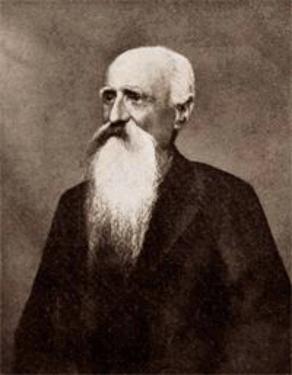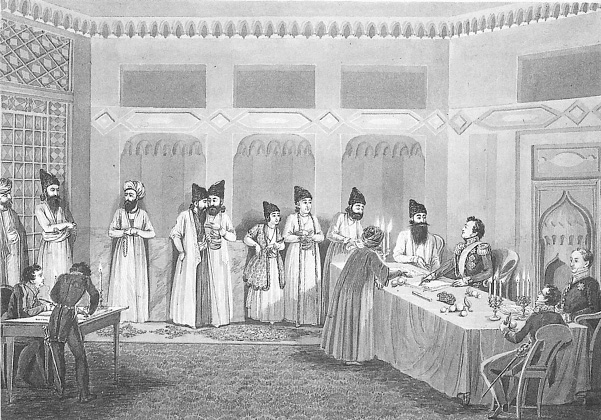|
1828 In Philosophy
Events Publications Births * January 28 - Roberto Ardigò (died 1920) * May 26 - Boris Chicherin (died 1904) * July 12 - Nikolay Chernyshevsky (died 1889) * September 28 - Friedrich Albert Lange (died 1875) * October 16 - Nikolay Strakhov (died 1896) * October 28 - Joseph Dietzgen (died 1888) Deaths References {{Reflist Philosophy Philosophy (from , ) is the systematized study of general and fundamental questions, such as those about existence, reason, knowledge, values, mind, and language. Such questions are often posed as problems to be studied or resolved. Some ... 19th century in philosophy Philosophy by year ... [...More Info...] [...Related Items...] OR: [Wikipedia] [Google] [Baidu] |
Roberto Ardigò
Roberto Felice Ardigò (28 January 1828 – 15 September 1920) was an Italian philosopher. He was an influential leader of Italian positivism and a former Roman Catholic priest. Ardigò was born in Casteldidone, in what is now the province of Cremona, in Lombardy, and trained for the priesthood. He resigned from the Church in 1871 after abandoning theology and faith in 1869. He was appointed as a professor of theology at the University of Padua in 1881, at a time when a reaction to idealism had taken place in philosophical circles. Inspired by Auguste Comte, Ardigò differed from Comte in that he considered thought more important than matter and insisted on psychological disquisition. He believed thought was dominant in every action and the result of every action, and that it disappears only in a state of general corruption. He died by suicide at Mantua Mantua ( ; it, Mantova ; Lombard language, Lombard and la, Mantua) is a city and ''comune'' in Lombardy, Italy, and capit ... [...More Info...] [...Related Items...] OR: [Wikipedia] [Google] [Baidu] |
Boris Chicherin
Boris Nikolayevich Chicherin (russian: Бори́с Никола́евич Чиче́рин) ( 1828 – 1904) was a Russian jurist and political philosopher, who worked out a theory that Russia needed a strong, authoritative government to persevere with liberal reforms. By the time of the October Revolution, Russian Revolution, Chicherin was probably the most reputable legal philosopher and historian in Russia. Biography Chicherin was born in Tambov Governorate, Tambov, where his noble ancestors had been residing for many centuries. In 1849, he matriculated from the law department of the Moscow University. On insistence of Dr. Timofey Granovsky, he continued to work in the university as a professor of Russian law. Together with his friend Konstantin Kavelin, he penned a comprehensive program of Russian liberalism which was published by Alexander Herzen in London. Chicherin was a great champion of Alexander II of Russia, Alexander II's reforms of the 1860s, hailing them as "the be ... [...More Info...] [...Related Items...] OR: [Wikipedia] [Google] [Baidu] |
Nikolay Chernyshevsky
Nikolay Gavrilovich Chernyshevsky ( – ) was a Russian literary and social critic, journalist, novelist, democrat, and socialist philosopher, often identified as a utopian socialist and leading theoretician of Russian nihilism. He was the dominant intellectual figure of the 1860s revolutionary democratic movement in Russia, despite spending much of his later life in exile to Siberia, and was later highly praised by Karl Marx, Georgi Plekhanov, and Vladimir Lenin. Biography The son of a priest, Chernyshevsky was born in Saratov in 1828, and stayed there until 1846. He graduated at the local seminary where he learned English, French, German, Italian, Latin, Greek and Old Slavonic. It was there he gained a love of literature. At St Petersburg University he often struggled to warm his room. He kept a diary of trivia like the number of tears he shed over a dead friend. It was here that he became an atheist. He was inspired by the works of Hegel, Ludwig Feuerbach and Charle ... [...More Info...] [...Related Items...] OR: [Wikipedia] [Google] [Baidu] |
Friedrich Albert Lange
Friedrich Albert Lange (; 28 September 1828 – 21 November 1875) was a German philosopher and sociologist. Biography Lange was born in Wald, near Solingen, the son of the theologian, Johann Peter Lange. He was educated at Duisburg, Zürich and Bonn, where he distinguished himself in gymnastics as much as academically. In 1852 he became a schoolmaster at Cologne; in 1853 ''Privatdozent'' in philosophy at Bonn; and in 1858 schoolmaster at Duisburg, resigning when the government forbade schoolmasters to take part in political activities. Lange entered journalism as editor of the ''Rhein- und Ruhr-Zeitung'' in 1862 in the cause of political and social reform. His ''ceterum censeo'' can be considered to be the repeated demand for Bismarck's resignation. He was prominent in public affairs, yet found enough time to write most of his best-known books, ''Die Leibesübungen'' (1863), ''Die Arbeiterfrage'' (1865, 5th ed. 1894), ''Geschichte des Materialismus'' (1866), and ''John Stuart ... [...More Info...] [...Related Items...] OR: [Wikipedia] [Google] [Baidu] |
Nikolay Strakhov
Nikolay Nikolayevich Strakhov, also transliterated as ''Nikolai Strahov'' (; October 16, 1828 – January 24, 1896), was a Russian philosopher, publicist, journalist and literary critic. He shared the ideals of Pochvennichestvo and was a longtime friend and correspondent of Leo Tolstoy. Strakhov was born in Belgorod, Kursk Governorate in a priest family. After leaving St Petersburg University (unable to afford the fees), in 1851 Strakhov graduated from Saint Petersburg's Main Pedagogical Institute, after which he taught for one year in Odessa, followed by nine years' teaching at a gymnasium in Saint Petersburg. In 1861, Strakhov became a prominent publicist and literary critic. Strakhov worked on the literary journals ''Time'' and ''Epoch'' together with Fyodor Dostoyevsky and Apollon Grigoryev. He became one of the very few close friends of Leo Tolstoy. In the 1870s Nikolay Strakhov wrote his most famous philosophical work ''World as a Whole'' and was among the first (if not th ... [...More Info...] [...Related Items...] OR: [Wikipedia] [Google] [Baidu] |
Joseph Dietzgen
Peter Josef Dietzgen (December 9, 1828April 15, 1888) was a German socialist philosopher, Marxist and journalist. Dietzgen was born in Blankenberg in the Rhine Province of Prussia. He was the first of five children of father Johann Gottfried Anno Dietzgen (1794–1887) and mother Anna Margaretha Lückerath (1808–1881). He was, like his father, a tanner by profession; inheriting his uncle's business in Siegburg. Entirely self-educated, he developed the notion of dialectical materialism independently from Marx and Engels as an independent philosopher of socialist theory. He had one son, Eugene Dietzgen. Life as revolutionary and philosopher Early on in his youth, Joseph Dietzgen worked with the famed Forty-Eighters of the 1848 German Revolution. It was there that he first met Karl Marx and other socialist revolutionaries, and began his career as a socialist philosopher. Following the failure of the 1848 Revolution he spent some time in the United States from 1849 to 1851, retur ... [...More Info...] [...Related Items...] OR: [Wikipedia] [Google] [Baidu] |
1828
Events January–March * January 4 – Jean Baptiste Gay, vicomte de Martignac succeeds the Comte de Villèle, as Prime Minister of France. * January 8 – The Democratic Party of the United States is organized. * January 22 – Arthur Wellesley, 1st Duke of Wellington succeeds Lord Goderich as Prime Minister of the United Kingdom. * February 19 – The Boston Society for Medical Improvement is established in the United States. * February 21 – The first American-Indian newspaper in the United States is published, named "Cherokee Phoenix". * February 22 – Treaty of Turkmenchay: By this Russian-Persian peace treaty signed on February 10 at Torkamanchay, Persia (Iran), the latter country is forced irrevocably to cede the territories of the Erivan Khanate (most of present-day central Armenia and the northern Iğdır Province of Turkey), the Nakhichevan Khanate (most of the modern-day Nakhchivan Autonomous Republic of Azerbaijan), the remainder of the Talysh Khanate (so ... [...More Info...] [...Related Items...] OR: [Wikipedia] [Google] [Baidu] |
19th Century In Philosophy
In the 19th century, the philosophers of the 18th-century Age of Enlightenment, Enlightenment began to have a dramatic effect on subsequent developments in philosophy. In particular, the works of Immanuel Kant gave rise to a new generation of German philosophers and began to see wider recognition internationally. Also, in a reaction to the Enlightenment, a movement called Romanticism began to develop towards the end of the 18th century. Key ideas that sparked changes in philosophy were the fast progress of science, including evolution, most notably postulated by Charles Darwin and Jean-Baptiste Lamarck, and theories regarding what is today called Emergence, emergent order, such as the free market of Adam Smith within nation states, or the Marxist approach concerning class warfare between the ruling class and the working class developed by Karl Marx and Friedrich Engels. Pressures for egalitarianism, and more rapid change culminated in a period of revolution and turbulence that woul ... [...More Info...] [...Related Items...] OR: [Wikipedia] [Google] [Baidu] |


